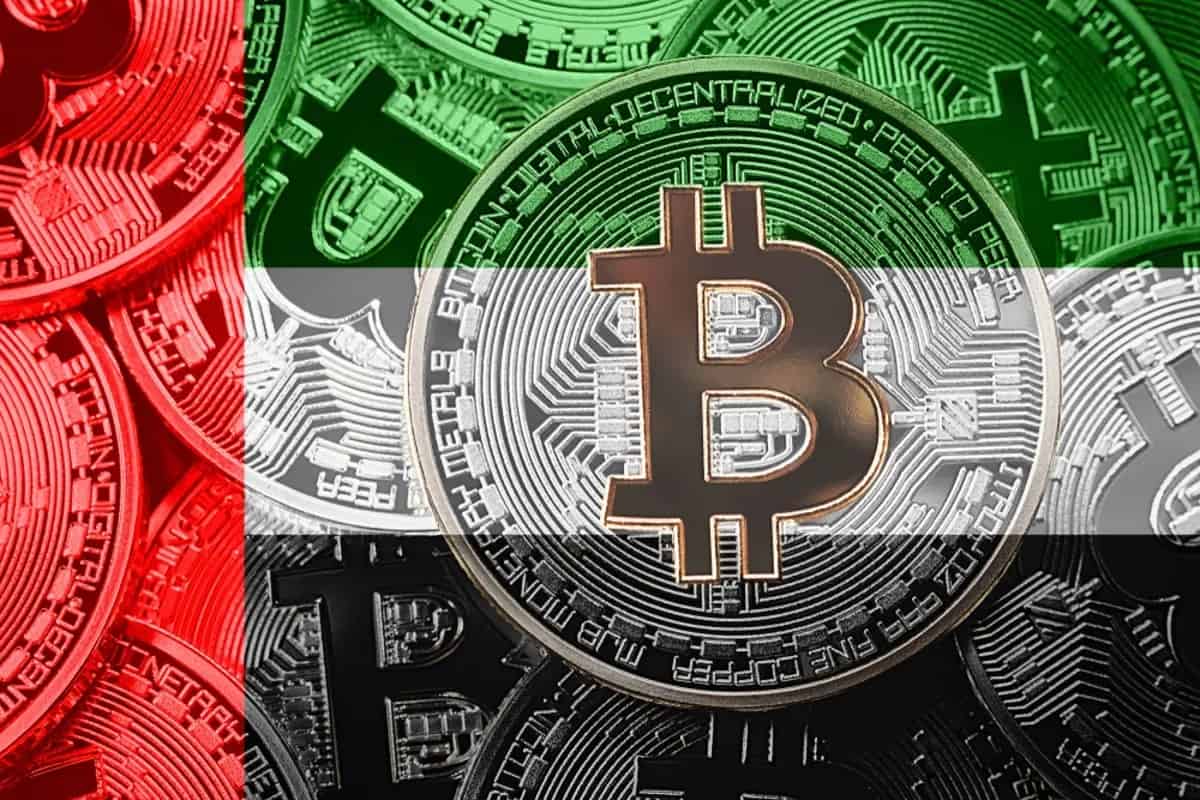Dubai, UAE— When cryptocurrency exchange Bybit decided to shift its headquarters from Singapore to Dubai early this year, it caused quite a stir in the world of crypto.
Singapore, after all, had been hailed as the most crypto-friendly country in the world. The city-state had welcomed crypto companies with a licensing regime since 2020.
And now the biggest players in the crypto universe all of a sudden were deserting the country, and moving further to the west to Dubai. Many wondered aloud what drove crypto firms such as Kraken, Binance, Bybit, Crypto.com to shift to Dubai.
The answer came in the shape of the UAE’s Virtual Assets Regulatory Authority (VARA). Perhaps the first regulatory mechanism in the world to grant licenses to crypto firms intending to establish shop in Dubai. The UAE demonstrated its willingness with VARA to be the first country to have the regulation to oversee the crypto sector rather than curbing it.
In comparison, Singapore, a rival crypto hub, had begun limiting crypto firm’s advertisements to safeguard consumers from what it saw as the dangers of trading volatile assets. And the tactic, in the opinion of many, had scared off crypto firms from the city-state.
Thus Singapore’s loss became Dubai’s gain. According to Wael Makarem, a senior market strategist at Exness, the UAE has stood out from the start as a “welcoming jurisdiction” for the crypto industry. “The UAE established clear goals to develop cryptocurrencies, metaverse, and new digital-centric sectors,” he told TRENDS.

It is no wonder then that with a regulatory ecosystem in place, Dubai has seen arrival of many crypto players at a speed that took it by surprise.
Jeffrey Krayem, a crypto and blockchain expert, who launched ISLAMICOIN, a cryptocurrency, from Dubai told TRENDS that he chose the place because “it represents the best place to start a business in order to reach the whole world.”
ISLAMICOIN is a cryptocurrency that complies with Islamic Shariah law. It is currently listed on five trading exchanges.
Many experts hold the view that Dubai possesses all the elements needed to be a major cryptocurrency trading hub. “The UAE provides a hospitable setting with a solid infrastructure and authoritative entities, a government keen to participate in the Metaverse, and a push for the business sector to expedite its Web 3.0 strategy.
In addition to the city’s well-known “red tape-free” business environment, Dubai also has a sizable pool of skilled workers,” said Atul Hegde, the founder of YAAP, a digital content firm.
Still, with competition from countries such as Israel, Turkey, and Lebanon, which have emerged as big crypto trading centers in the region, Makarem opines that regulators in Dubai ought to be open to the idea of implementing appropriate legislative modifications in response to the virtual world’s demands.
On the other side, a report published by CoinJournal revealed that Singapore topped the countries with the most crypto jobs, offering 951 jobs in total, and 159.14 crypto jobs per million people.
The UAE, came in 9th place globally and the 1st in the Arab World, providing 137 crypto jobs, equivalent to 14.51 crypto jobs per million people..
While Latvia came in first in the top 7 countries with the highest crypto salaries list, offering around US$ 170k per year, followed by Lebanon which offers US$50K per year. While the UAE came in at fourth offering US$132K/ year.
Many assert though that the government alone cannot be entrusted with the charge of building the crypto sector in the country and suggest that other players should chip in to make it work.
“Crypto-trade platforms in the UAE will evolve in the future. However, this will need good cooperation from other sectors,” said Faisal Zaidi, a co-founder and chief marketing officer at CryptoOasis.
Zaidi believes that Dubai has set up a whole gamut of blockchain-based applications to emerge as a leader in the cryptocurrency business. “Dubai announced the Global Blockchain Council in February 2016. The council comprised government entities, leading UAE banks, blockchain technology firms, and international companies,” he told TRENDS.
He went on to say the Dubai model was inspiring others to follow suit. “The council piloted blockchain-based applications to boost municipal operations and organized citywide workshops to determine which services could benefit most from widespread blockchain implementation.
The rest of the UAE has been inspired by Dubai’s drive to become a blockchain-powered Smart City and a global thought leader in the cryptocurrency business,” he said.

And the resolve to make the region the global capital for crypto doesn’t stop at the borders of Dubai. It goes beyond it to Abu Dhabi as well. As Zaidi sees it, Abu Dhabi is equally determined to attract international players to the emirate.
It set up Abu Dhabi Global Market (ADGM), a free zone in Abu Dhabi, underlining its fintech ambitions with the launch of a digital sandbox in September 2018.
In 2021, the ADGM Financial Services Regulatory Authority began licensing international cryptocurrency exchanges and establishing a virtual asset framework for digital trading assets.
While some maintain that a “substantial risk” exists in that the granting of a license could encourage participation in an illicit funding scheme, they are quick to cite the UAE’s conduct of a virtual asset risk assessment in 2021 with the help of 14 government agencies and 16 commercial industry participants.
The experts advocate for a robust system of regulation to address these concern rather than outright bans.
Many take heart from assessments like one provided by Chainalysis, which analyzed crypto trading from July 2020 to June 2021. It said the UAE is the third largest cryptocurrency market in the Middle East, behind Turkey and Lebanon, with a transaction volume of roughly $26 billion.
And in the UAE, unlike much of the world, there is a growing acceptance of cryptocurrency among consumers as a mode of payment. YallaMarket, a grocery delivery service, has been accepting payments in crypto and is also toying with the idea of paying salaries in crypto.
In March 2022, YouGov discovered that trust in cryptocurrencies across the world is highest among adults in the UAE. The survey found that consumers in the MENA region have a positive, optimistic sentiment toward cryptocurrency.
Last month, however, the industry experienced a setback, jolting both the crypto insiders and investors. FTX, one of the largest cryptocurrency exchanges, collapsed. It capped days of slide for the company after Binance, the world’s largest crypto exchange, reversed its decision to acquire FTX.
According to industry analysts, FTX had founded its business on very risky trading options, which are not legal in the US. Its new chief executive John Jay Ray III in the bankruptcy filing characterized several corporate missteps, including the use of software to “conceal the misuse of customer funds.”
The downfall of FTX has again sharpened the debate over the future of a digital asset struggling to convince regulators, investors and ordinary customers that it is trustworthy.
Even though Binance, the largest cryptocurrency exchange in the world, has “temporarily suspended” withdrawals of the USDC stablecoin, blockchain data firm Nansen announced that US$ 1.9 billion had been withdrawn from the exchange in only 24 hours at the end of November 2022.
The massive withdrawal might be because of the users, and authorities focus on how crypto exchanges like Binance and its now-defunct erstwhile rival FTX handle consumer deposits.
At the same time, Binance is facing another accusation. According to the analysis conducted by Chainalysis, the crypto exchange has processed Iranian transactions worth $8 billion since 2018, despite US sanctions to cut Iran off from the global banking system. In detail, almost US$ 7.8 billion in cryptocurrency was traded between Binance and Iran’s largest crypto exchange, Nobitex.
TRENDS contacted Binance several times for a comment about the recent accusations, but there was no reply.
But the standing of the digital asset as of now doesn’t seem to be affected much in the MENA region. In order to find out the most popular trading platform for crypto investors in the MENA, TRENDS ran a poll.
The poll gained more than seventy-thousand impressions. MENA investors voted for Binance as their top trading platform.
Some 67.4 percent voted for Binance, 14.7 percent voted for BitOasis, 11 percent voted for Coinbase, and only 6.9 percent voted for other platforms.
Most voters were male (85.2 percent), while female were only 14.7 percent, and 0.1 percent were not specified.
(Hadeel Karnib and Marcelle Mohamed also contributed to this news feature)








